Over the past few weeks, we have discussed what to look for in a massage therapy school in Miami. So far, we've covered the quantitative and qualitative details to look for. In short, this information gives you an idea of the quality of education of the school, your financial responsibilities, and your employment prospects. They are:
1. State of Florida Approval: In order to meet legal licensing requirements, only apply to massage therapy schools in Miami that are approved by the Florida Board of Massage Therapy.
2. National-Accreditation: Educational institutions that National Accreditation nationally-accredited massage therapy school in Florida. Be sure to ask if they grant federal financial aid.
3. Tuition and Costs: Make sure you know what the tuition is. Be sure to factor in other costs, such as administrative fees, textbooks, clinic uniforms, etc. Be sure to ask what the average amount of debt is after graduation and what the monthly payback amount (and interest rate) is.
4. Mblex Pass Rate: Passing the Mblex (Massage Therapy and Bodywork Licensing Exam) is required in Florida and most other States before being able to legally work as a massage therapist. Apply to massage therapy schools in Miami that have at least a 75% average pass rate for first-time test takers.
5. Job Placement Rate: After graduation, you will want to find a job as quickly as possible. Choosing a massage program with a high-job placement rate is a good indication of your employability.
While this information is important, it does not reveal anything about the school itself. More importantly, it does not reveal whether a particular massage school is a good fit for you. Let’s look at some details to keep in mind when determining the personal and cultural fit of a particular massage therapy school or program.
Luckily, figuring out which massage school in Miami is a good fit for you is easy to do.
Nature of Massage Program: Different colleges will emphasize different aspects of their massage therapy program. Part of deciding which school is the best fit for you is to think of your individual interests and career goals.
- Alternative Medicine: If you’re passionate about alternative medicine and holistic health, then a massage therapy program at a chiropractic college or an acupuncture school, like Acupuncture and Massage College, is a good choice. Aside from enjoying the lecture material more, graduating from an Oriental Medicine college will make more employable at a complementary and integrative medical setting, such as acupuncturist, chiropractor, or at a pain clinic, over someone that only studied massage therapy from a conventional medicine point of view.

- Health and Beauty: Are you really into health from a beauty? Would you rather work at a fancy spa than a hospital? If so, maybe you should consider a school, like the Atlanta School of Massage, that offers programs in massage therapy and esthetics.
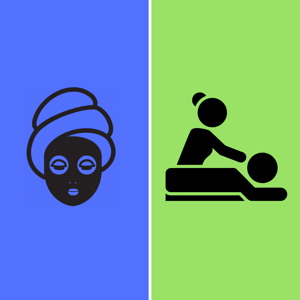
- Specialized Massage Modality: Some schools offer specialization tracks and certificates as part of their massage therapy program. Evaluate these offerings in light of your career goals. For example, if your dream is to become a massage therapist for the Miami Dolphins, then enrolling in a program with a Sports Massage certificate would be a good choice.
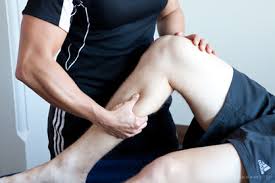
If you really want to work with an acupuncturist or have a specific interest in Oriental Medicine, look for a massage therapy program, like our Miami massage school, that offers a specialization certificate in Shiatsu or Tuina.

Schedule: It doesn’t matter if the perfect school exists if its class times do not fit in with your personal schedule. That’s why, aside from Florida Massage Board approval, the most important detail to know about a particular program is its schedule offerings and whether you can manage your personal life and school.
Different schools offer different class schedules. While most will offer full-time and part-time options, the specific class times and days of the week that classes meet may vary between institutions. You will need to weigh the various pros and cons of both schedule options and decide which one is a better fit.
- Full-Time Option: A full-time program allows you to finish your degree quicker, which could mean a quicker entry into the workforce as a massage therapist. However, this option reduces the number of hours you can work outside of school, so you will need to evaluate if and how this option affects your finances.
Full-time massage programs also have a longer, set daily-schedule. As such, you will also need to make sure that you can address any conflicts that this may create. For example, do you drop your kids off at school in the morning and pick them up in the afternoon? If so, can you manage to do this and make your classes on time? If not, can you get help for a couple months or should you look at taking classes in the evening? - Part-Time Option: Part-time programs are great for managing daily schedules, but consequently, take longer to complete. You will need to evaluate the impact that devoting extra time in school will have on your finances. If you’re planning on working full-time, consider the impact that working all day and attending classes in the night or all day on the weekends will have.
Campus Visit: After deciding which schedule option you want to commit to, the next step in determining whether a particular massage school is a good fit for you is to visit the campus. Visiting the campus will give you a snapshot of what the school’s overall environment is like. Here are some things to look out for:
- Campus Facilities: Much of what you see will seem painfully mundane: classrooms, desks, etc. However, keep in mind that you will be spending the better part of a year in this environment. Does the school have certain facilities and amenities that you need?
For example, is there a student break room with a microwave or will you have to eat a cold lunch in your classroom desk? If you have to wear a uniform for clinic (scrubs), is there a changing area or will you have to put it on before class starts? Is there a library on campus or do you have to find somewhere else to study? - Audit a Class: I highly recommend that you try to audit a class while you’re there. Auditing a class or two will give you a taste of the academic style of the institution. What do you notice about the learning environment? Is there a good ratio of students to teachers? Do the students seem engaged or are they looking at their phones more than whiteboard?
- Faculty and Learning Style: I also recommend that you gather some information about the faculty. What are your instructors like in person? Does their professional experience reflect someone you would want to learn from? Pay particular attention to the learning style of the college. While all massage schools utilize a combination of classroom learning and hands-on clinical practice, the environment, and styles they use vary between institutions.
For example, some there are some “hippie-type” massage schools where the students are barefoot in the classroom and practice massage on the floor on mats (instead of massage tables), and on occasion, outdoors. While this is great for some people, it’s not everyone’s cup of tea.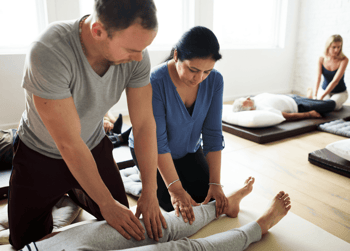
- Student Clinic: Visiting the student clinic should also be a priority when visiting the campus. Keep in mind that you will spend over 160 hours there as a student. Analyze the environment. Is it is clean and well-stocked? How do the clinics compare between different schools?
While this may seem like a lot of information to take in, determining which massage school is a good fit for you is actually easier to figure out than you may think. Again, the first thing to do is to visit the campus and get a vibe of the school. This is often enough to determine whether or not you like a particular institution. At the same time, don't feel too intimidated to make multiple visits to the same institution. After all, you're going to be spending several months at massage school, so make sure it's the right one for you.
If you're interested in visiting our campus or auditing a massage therapy class, please contact us at 305-595-9500 or visit us in person at 10506 N Kendall Dr., Miami, FL 33176. To learn more about becoming a Licensed Massage Therapist, be sure to download our free massage therapy career guide below.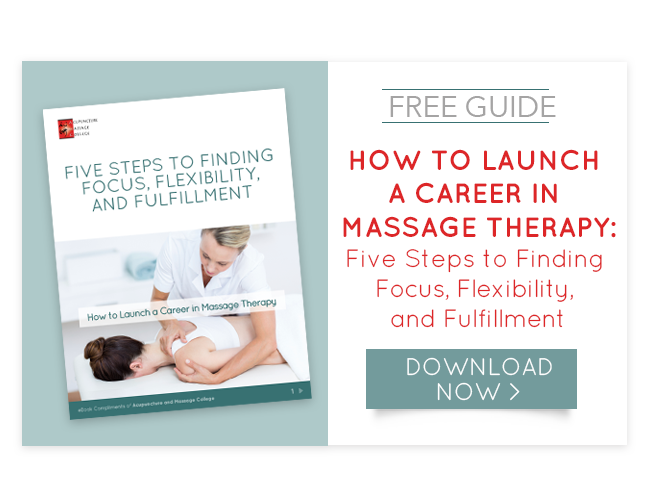
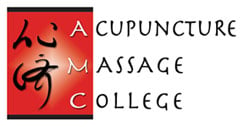
 (305) 595-9500
(305) 595-9500






